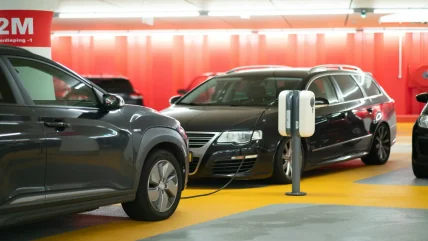
The business car fleet market in the UK, a critical component of many companies’ operations, has faced significant challenges amid the recent economic downturn. With the economy grappling with recessionary pressures, rising inflation, and post-Brexit uncertainties, the fleet sector has had to adapt rapidly to maintain efficiency and cost-effectiveness. This article delves into the multifaceted impact of the economic downturn on the UK business car fleet market, examining key trends, challenges, and potential strategies for fleet managers and businesses to navigate these turbulent times.
The Economic Landscape and Its Implications
Economic Downturn: An Overview
The UK economy has been navigating a complex landscape marked by slow growth, high inflation, and geopolitical tensions. The aftermath of Brexit, coupled with the global impact of the Covid-19 pandemic and the Russia-Ukraine conflict, has exacerbated economic instability. According to the Office for National Statistics (ONS), the UK’s GDP growth slowed significantly in 2023, with the economy teetering on the edge of recession. Inflation has surged, driven by supply chain disruptions and energy price hikes, further straining business operations.
Impact on Business Car Fleet Market
The economic downturn has had a profound impact on the business car fleet market, influencing both demand and operational dynamics. Companies are reevaluating their fleet requirements, seeking cost reductions, and exploring alternative mobility solutions. The downturn has led to decreased capital expenditure on new vehicles, increased focus on fleet optimisation, and a shift towards more sustainable and cost-efficient options.
Key Trends Shaping the Market
Decline in New Vehicle Registrations
One of the most noticeable impacts of the economic downturn has been the decline in new vehicle registrations. According to the Society of Motor Manufacturers and Traders (SMMT), new car registrations for fleets fell by 20% in 2023 compared to the previous year. Businesses are postponing vehicle replacements and extending the lifecycle of their existing fleets to conserve capital.
Rise of Fleet Leasing and Rental Solutions
With tighter budgets, companies are increasingly turning to fleet leasing and rental solutions as a cost-effective alternative to outright purchases. Leasing allows businesses to manage cash flow more effectively by spreading costs over a fixed period. Additionally, flexible rental solutions provide the agility to scale fleet size according to immediate needs without long-term financial commitments.
Emphasis on Fleet Optimisation and Efficiency
Fleet managers are under pressure to optimise operations and extract maximum value from existing assets. Telematics and fleet management software have become essential tools, enabling real-time tracking, route optimisation, and predictive maintenance. By leveraging data analytics, companies can reduce fuel consumption, minimise downtime, and enhance overall fleet performance.
Shift Towards Electric Vehicles (EVs)
The transition to electric vehicles (EVs) has gained momentum, driven by environmental regulations and the need to reduce operational costs. Despite the economic downturn, investment in EVs is seen as a strategic move to future-proof fleets against rising fuel prices and stringent emission standards. The UK government’s commitment to phasing out new petrol and diesel cars by 2030 further accelerates this shift.
Challenges Facing Fleet Managers
Budget Constraints and Cost Pressures
Economic uncertainty has forced companies to tighten their belts, resulting in stringent budget constraints. Fleet managers must balance the need for operational efficiency with cost-saving measures, often leading to difficult decisions regarding fleet size, vehicle replacement cycles, and investment in new technologies.
Supply Chain Disruptions
Global supply chain disruptions have significantly impacted the availability of new vehicles and spare parts. Semiconductor shortages, logistical bottlenecks, and fluctuating raw material prices have led to longer lead times and increased costs. Fleet managers must navigate these challenges while ensuring minimal disruption to business operations.
Regulatory Compliance
Navigating the complex regulatory landscape is a persistent challenge for fleet managers. The UK’s evolving environmental regulations, such as the introduction of Clean Air Zones (CAZ) and the impending ban on new petrol and diesel vehicles, necessitate compliance strategies that can be both costly and operationally demanding.
Workforce Mobility and Remote Work Trends
The rise of remote work and hybrid working models has altered workforce mobility patterns, impacting fleet utilisation. With fewer employees commuting regularly, companies must reassess fleet requirements and optimise utilisation to avoid underused assets.
Strategies for Navigating the Downturn
Embracing Technology and Data Analytics
Investment in telematics and fleet management software is crucial for optimising fleet operations. These technologies provide actionable insights into vehicle performance, driver behaviour, and maintenance needs, enabling data-driven decision-making. By leveraging predictive analytics, fleet managers can anticipate issues before they arise, reducing downtime and repair costs.
Exploring Alternative Mobility Solutions
Car-sharing and ride-hailing services offer flexible mobility solutions that can complement traditional fleet operations. By partnering with mobility service providers, businesses can reduce fleet size, lower costs, and provide employees with on-demand transportation options. This approach also aligns with the growing trend towards sustainable and shared mobility.
Investing in Electric Vehicles
Despite the initial cost, transitioning to electric vehicles can yield long-term savings and operational benefits. Lower fuel and maintenance costs, combined with government incentives and lower emissions, make EVs an attractive option. Fleet managers should conduct a comprehensive cost-benefit analysis and consider phased adoption to manage the financial impact.
Extending Vehicle Lifecycles
Extending the lifecycle of existing vehicles is a pragmatic approach to managing budget constraints. Regular maintenance and proactive repairs can prolong vehicle life and ensure reliability. Fleet managers should implement robust maintenance programmes and utilise data from telematics to monitor vehicle health and schedule timely interventions.
Enhancing Driver Training and Safety
Investing in driver training programmes can significantly impact fleet efficiency and safety. Training programmes focused on eco-driving techniques, defensive driving, and compliance with regulations can reduce fuel consumption, minimise accidents, and lower insurance costs. Well-trained drivers contribute to a safer and more cost-effective fleet operation.
Strategic Fleet Downsizing
In response to reduced demand and changing mobility patterns, strategic downsizing of fleets can help businesses cut costs and optimise utilisation. By analysing utilisation data and reassessing fleet needs, companies can identify underused vehicles and streamline their fleets accordingly. This approach ensures that resources are allocated efficiently and cost-effectively.
Conclusion
The economic downturn has undeniably posed significant challenges for the UK business car fleet market. However, it has also spurred innovation and strategic thinking among fleet managers and businesses. By embracing technology, exploring alternative mobility solutions, and optimising existing assets, companies can navigate these turbulent times and emerge stronger. The shift towards electric vehicles, while necessitating upfront investment, offers a sustainable path forward in line with regulatory trends and environmental goals.
As the market continues to evolve, fleet managers must remain agile and adaptable, leveraging data-driven insights and industry best practices to optimise operations. The ability to balance cost efficiency with operational effectiveness will be crucial in steering through the current economic landscape and positioning for future growth.





